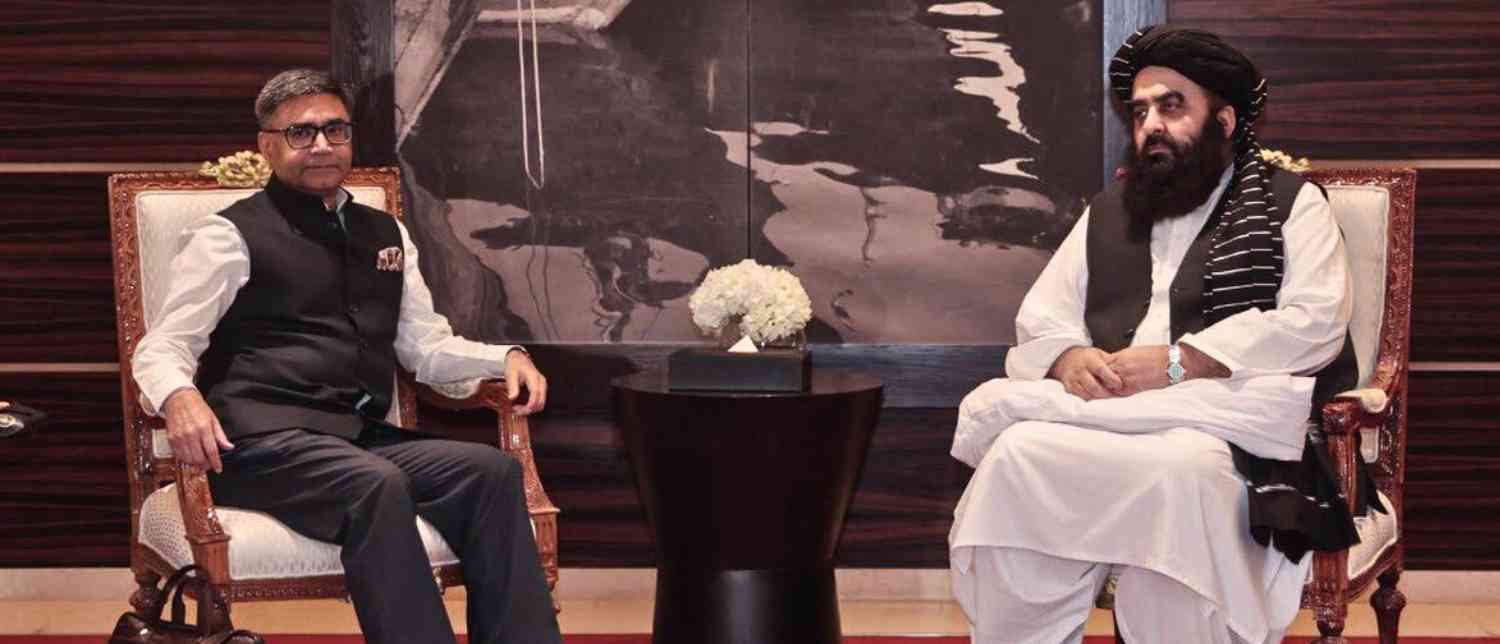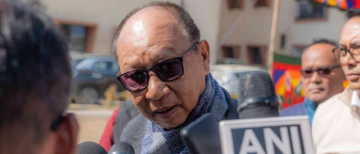India’s capital, New Delhi, has recently welcomed a rare and significant visitor – Amir Khan Muttaqi, the acting Foreign Minister of Afghanistan’s Taliban-led government. His arrival has stirred diplomatic circles and set off discussions about what this means for India’s policy towards Afghanistan, its neighbourhood strategy, and the delicate balance of international relations.
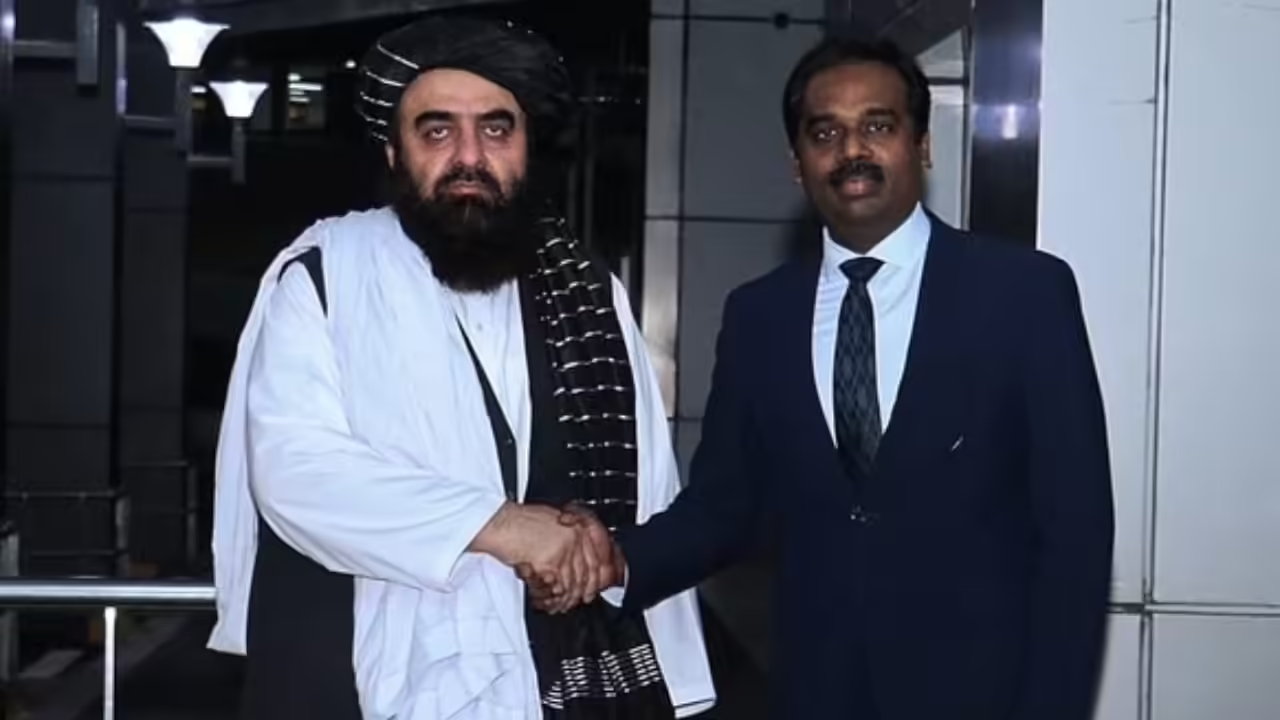
Since the Taliban’s takeover of Afghanistan in August 2021, most countries have kept formal engagement to a minimum, wary of the group’s reputation and governance style. Yet, India’s invitation to Muttaqi signals a shift. Even though India does not officially recognise the Taliban government, this visit shows a willingness to talk — and perhaps to explore practical cooperation.
The meeting is expected to cover a variety of topics, from humanitarian aid and trade channels to regional security. An important subtext here is connectivity and commerce, as Afghanistan remains a critical gateway between South and Central Asia.
The timing of Muttaqi’s trip is no accident. Regional politics is undergoing rapid changes. The withdrawal of U.S. troops left a strategic vacuum, and surrounding powers — including China, Russia, Iran, and India — have been manoeuvring to protect their interests.
For India, a stable Afghanistan means reduced spillover of terrorism, better trade routes to Central Asia, and fewer challenges from Pakistan-backed militant networks. The Taliban, on the other hand, is facing economic hardship, international isolation, and a growing need for trade partnerships.
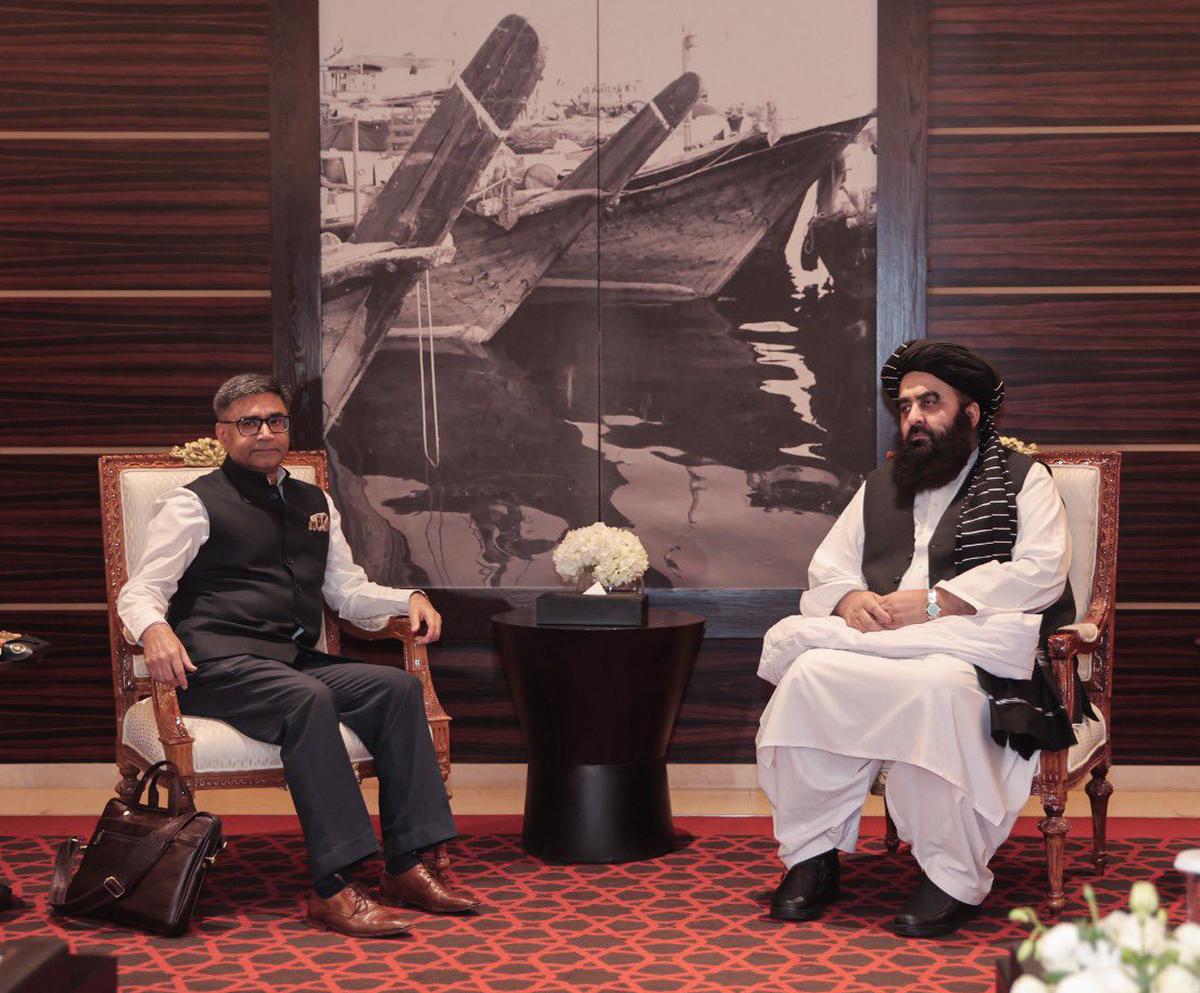
India’s history with the Taliban is complicated. In the 1990s, New Delhi had minimal ties, aligning more with the Northern Alliance that opposed the Taliban. The 2021 return of Taliban rule forced India to re-evaluate. With threats from extremist groups and cross-border militancy still present, India’s security agencies remain alert.
However, complete disengagement has its risks. Without communication, India’s influence over Afghan developments would be minimal, leaving space for other powers more willing to fill the gap — notably China and Pakistan. The presence of Muttaqi is therefore also a signal to those nations that India is open to direct dialogue.
One of the most important potential areas of cooperation is trade. Afghanistan’s location could help India reach markets in Central Asia more efficiently, especially through projects like the International North-South Transport Corridor and Chabahar Port in Iran.
Practical hurdles remain — sanctions on the Taliban restrict formal agreements, and there are trust issues to overcome. Still, informal trade, especially in agricultural products and medicinal items, has continued at low levels since 2021. Discussions during Muttaqi’s visit may explore ways to expand such commerce without breaking international laws.
_1760086319.jpeg)
Despite political differences, India has consistently provided humanitarian aid to Afghanistan. Over the past three years, it has sent wheat, medical supplies, and COVID-19 vaccines through aid agencies, emphasising it does not wish to abandon the Afghan people.
By talking to the Taliban leadership, India can protect these aid channels from disruption and ensure that supplies actually reach ordinary citizens rather than being lost to political bottlenecks. This approach also helps India maintain a positive image among Afghans, which could be important for future relations.
India’s engagement with Muttaqi is likely to be closely monitored by the U.S., Europe, and allies like Japan. Most Western nations still hold off recognising the Taliban, citing concerns over women’s rights, civil liberties, and governance.
Neighbouring Pakistan, which has had a long and complex relationship with the Taliban, may see India’s outreach as a strategic competition. China, already involved in Afghan mining and infrastructure, will likely note India’s attempt to position itself as a player in Afghan stability.
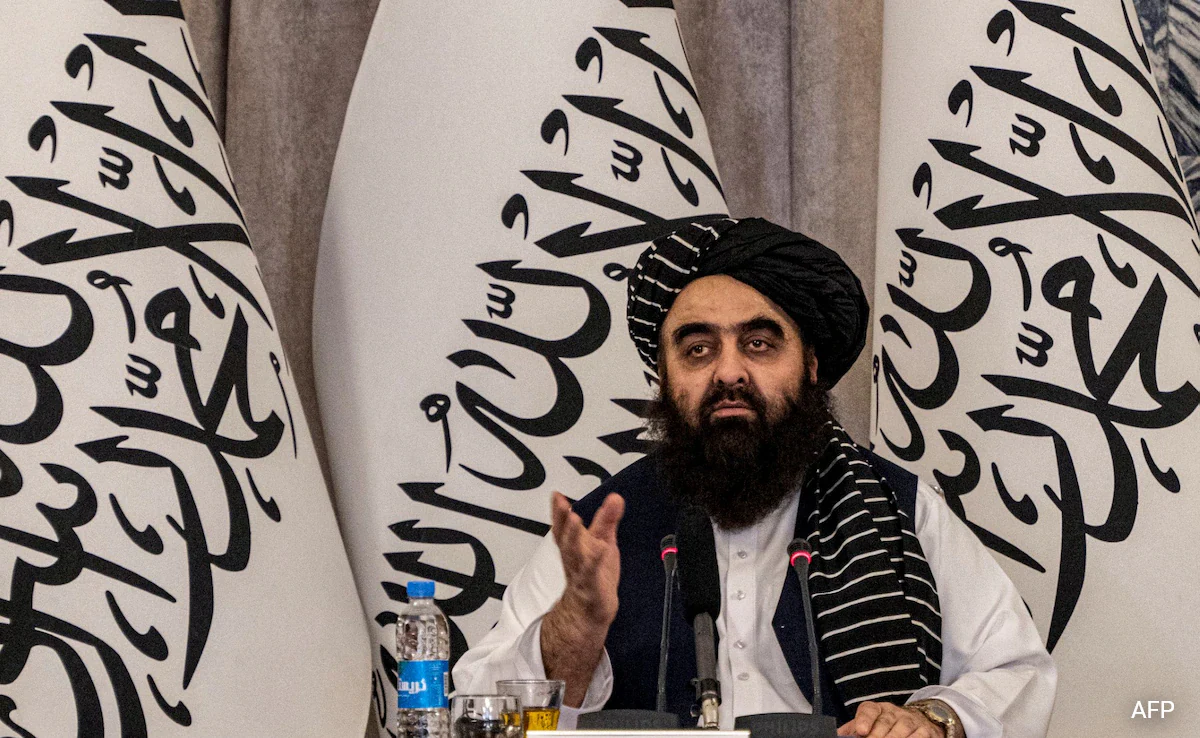
Rather than seeing this as support for the Taliban’s rule, New Delhi’s opening appears to be a pragmatic move — designed to keep India relevant in Afghan affairs and reduce risks along its borders. Diplomacy often means talking to those you don’t fully agree with, especially when national security and economic interests are at stake.
For Afghanistan, engaging with India offers an alternative to over-reliance on Pakistan and China, diversifying its connections at a time when global isolation is hurting its economy.
In the short term, the visit may lead to agreements on aid delivery or small-scale trade cooperation. In the longer run, if political conditions improve, India could once again take part in Afghanistan’s infrastructure development — something it had invested heavily in before 2021.
The challenge will be ensuring that ties remain focused on the welfare of the Afghan people while protecting India’s security interests. For now, Muttaqi’s presence in New Delhi is a reminder that foreign policy often takes shape not from idealism, but from the realities of geography, economics, and strategy.
With inputs from agencies
Image Source: Multiple agencies
© Copyright 2025. All Rights Reserved. Powered by Vygr Media.

